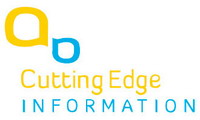Pharmaceutical Lifecycle Management: Strategy Selection and Execution
05 Nov 2010 • by Natalie Aster

London - Detailed market research report “Pharmaceutical Lifecycle Management: Strategy Selection and Execution” has been recently published by Cutting Edge Information.
Many executives interviewed are pessimistic about where their drugs might sit in five or 10 years. An LCM leader explained that, in the past few years, his products’ exclusivity periods have shrunk from eight years to six and a half, as generics companies became more aggressive in their efforts to invalidate patents. Patents that do not protect new chemical entities may not survive court challenges — a fact that threatens exclusivity for franchise additions such as new formulations.
One of the largest benefits an LCM team can provide is to ensure that long-term lifecycle planning is taking place, especially since motivating brand managers to commit funds for long-term returns can be difficult. Allocating adequate time for scientific strategies, for example, is often a challenge because the most promising and aggressive tactics should begin around the launch of the first-generation product — a time when the company is far more focused on recouping its long-term investment than on starting another.
Report Details:
Pharmaceutical Lifecycle Management: Strategy Selection and Execution
Published: September 2010
Pages: 209
Price: USD 7,695
Report Sample Abstract:
Disease Management Programs
Within the context of lifecycle management, disease management programs exist to increase and maintain patient adherence through patient education and support. They allow brands to establish relationships with patients by providing support in a supportive, non-commercial manner.
Improved patient adherence translates into higher sustained sales, but the concept goes beyond the simple arithmetic that ties revenues and refills. Brands that provide patient services cast themselves in a favorable light with their many stakeholders, including patients, prescribing physicians, payers, nurses, caregivers and patient groups. Physicians faced with a decision between a treatment with an excellent support program and one without will be more inclined to prescribe the former, since it will drive desired outcomes. Similarly, the public — especially patient advocate groups — are more likely to support such brands and their companies.
Some standard disease management program tools include support websites and call centers; online content featuring information and discussion about a disease; techniques to improve patient lifestyle and health; dose and refill reminder calls, emails and texts; and other tools to ensure that patients understand their conditions and treatments. These types of initiatives not only aid the patient by helping maintain motivation and adherence, but also by providing education about lifestyle choices that are critical components of treating many chronic diseases.
More information can be found in the report “Pharmaceutical Lifecycle Management: Strategy Selection and Execution” by Cutting Edge Information.
To order the report or ask for sample pages contact [email protected]
Contacts
MarketPublishers, Ltd.
Mrs. Alla Martin
Tel: +357 96 030922
Fax: +44 207 900 3970
[email protected]
www.marketpublishers.com
Analytics & News
